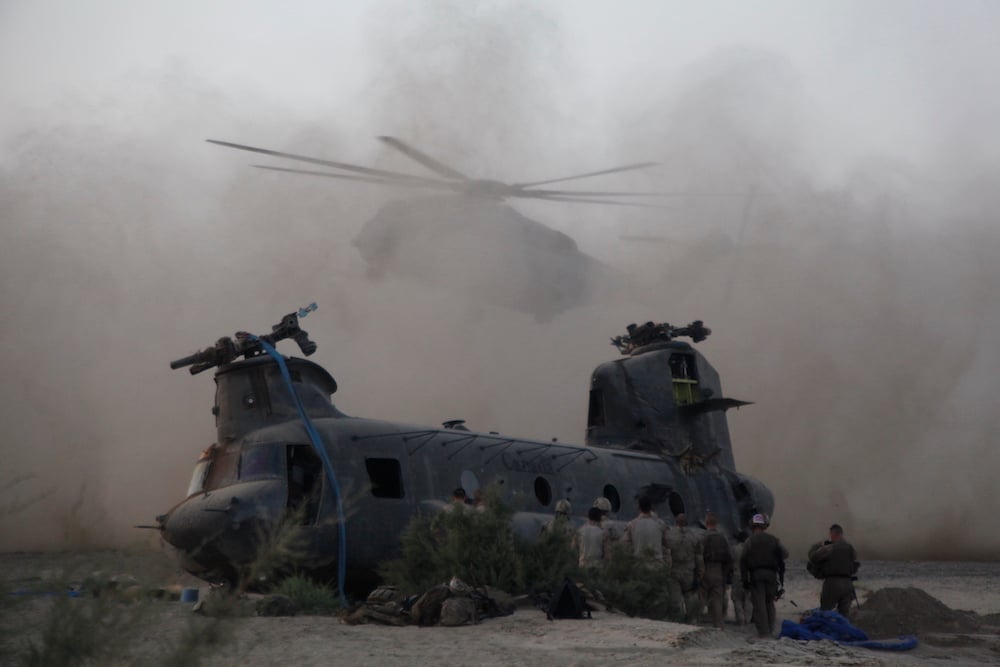International politics are all too often conducted on the level of middle-school cliques, where all the cool kids hang out at the same cafeteria table and make snide remarks about the classmates who don’t qualify for membership.
The Americans have led our clique for a long time, and we’ve generally laughed at their jokes and agreed with their opinions. But now the clique is trying to get itself out of a real mess in Afghanistan, and we might do ourselves (and the Americans) a favour by acting like grown-ups for a change.
We went into Afghanistan as a NATO member pledged to defend any other member under attack. Never mind that NATO was designed to deter a Russian invasion of western Europe, not punish imaginative freelance fanatics like Osama bin Laden’s al-Qaida. Since the fanatics were based in Afghanistan as guests of the ruling Taliban, then-U.S. president George W. Bush could have argued that, having abused their hosts’ hospitality, al-Qaida should be handed over to international justice. Failing to do so would implicate the Taliban in the 9/11 attacks and warrant very unpleasant consequences — up to and including all-out war.
If the Taliban had complied, we might have avoided a couple of forever wars and some very unpleasant consequences for ourselves. If they hadn’t, we could have fought with more commitment. Instead, Bush dragged us straight into Afghanistan and into semi-complicity with his pointless war against Iraq. Later presidents let the wars fester and create new threats like the Islamic State, while Canadian soldiers defended Kandahar and Canadian civilians tried to forget about the whole embarrassing business.
Coulda, shoulda, woulda. That was then; this is now. Our amnesia vanished this summer with the explosive rush of the Taliban filling the power vacuum left by the departing Americans. As in South Vietnam and many other American client states, the U.S. has learned yet again that money and weapons can’t impose “democratic” governments with enduring institutions — not against a determined opposition with a better understanding of local politics.
Rather than reflect on the follies that got us into this mess 20 years ago, we and the Americans are agonizing about our failure to recognize defeat much earlier, and to have at least extricated our Afghan supporters to safe new homes in North America. These agonies, while pressing, obscure the fact that such a movement of people would only have triggered an earlier collapse of the government. As in all such adventures, the façade is everything.
It’s been said that the only real mistakes are the ones we don’t learn from. The Americans have been very slow learners. Canada might, however, draw a lesson from Afghanistan, even if it means we graduate out of middle school and anger the cafeteria’s cool kids by leaving them behind.
The lesson is a simple one: Grow up. Recognize the Taliban as the de facto government of Afghanistan, and maintain a Canadian presence in Kabul.
Formal recognition wouldn’t be some Good Housekeeping Seal of Approval. It would just mean we accept reality and are willing to deal with it. Whatever our interests were in Afghanistan before 2001, we have interests now, especially in the welfare of the people who supported us. We can look after those interests far better if we’re on the ground rather than dealing with the Taliban through some third party like the long-suffering Swiss.
Not a love fest
We want “correct” relations, not a love fest of trade fairs and cultural events. But we strike a bargain. The Taliban gets the Afghan Embassy in Ottawa and its consulates. Its diplomatic personnel will enjoy complete security and freedom of movement, and we expect the same for our people in Afghanistan. If Taliban agents threaten or harass Afghan-Canadian residents and citizens, we will expel those agents.
By the same token, we will expect the Taliban to respect the rights and safety of Afghans who worked for us, the Americans or the previous government. If we arrange for the immigration of such persons to Canada or other countries, the Taliban should be glad to see them go.
This arrangement will give the Taliban a number of advantages. They will be able to monitor events and opinion in North America and keep a discreet eye on expatriates. Contacts with American and other western officials will be easier. Economic deals may be possible: the Taliban are likely to run short of cash very soon, and may want to play off western aid and trade against that from Russia and China — just as many poor countries did during the Cold War. Canada might even regain its standing as an honest broker with influence in Kabul.
Meanwhile we can track events in Afghanistan and gain a better sense of internal Taliban politics. They are unlikely to be a monolith; they will have factions, some more sympathetic to us than others. Better to deal with those factions on the ground instead of speculating about them in Canadian newspapers.
Sure, it’s embarrassing to be defeated. But ever since the 19th century, European countries have played the Great Game for control of Afghanistan and central Asia. Britain lost, then Russia lost, and now Canada, supporting the Americans, has lost resoundingly.
We’re fully entitled to dislike the Taliban, but our preferred military solutions have solved nothing. It’s time to face reality and settle for harm reduction. You can’t live at the cool kids’ table all your life. ![]()
Read more: Federal Politics

















Tyee Commenting Guidelines
Comments that violate guidelines risk being deleted, and violations may result in a temporary or permanent user ban. Maintain the spirit of good conversation to stay in the discussion.
*Please note The Tyee is not a forum for spreading misinformation about COVID-19, denying its existence or minimizing its risk to public health.
Do:
Do not: